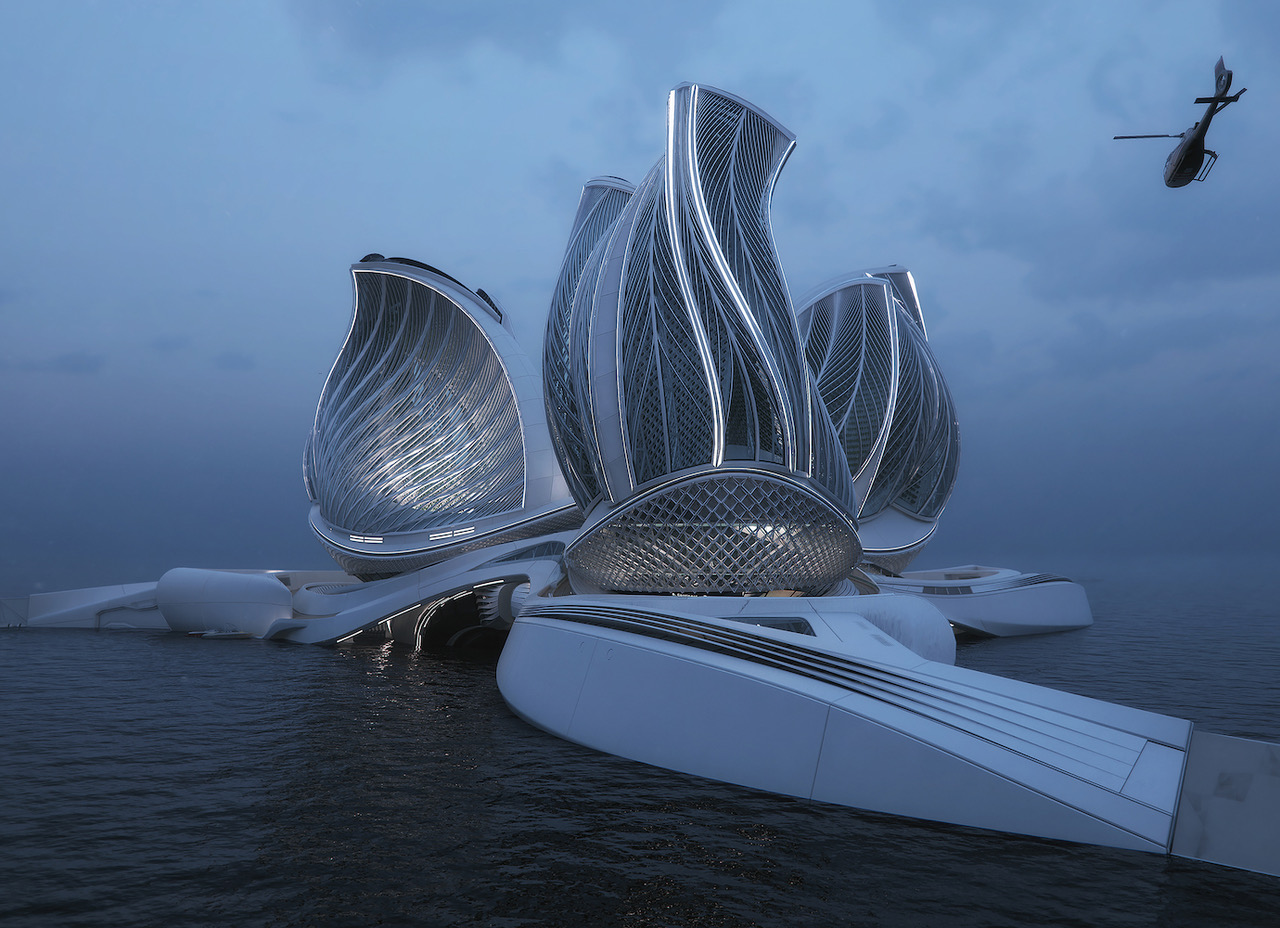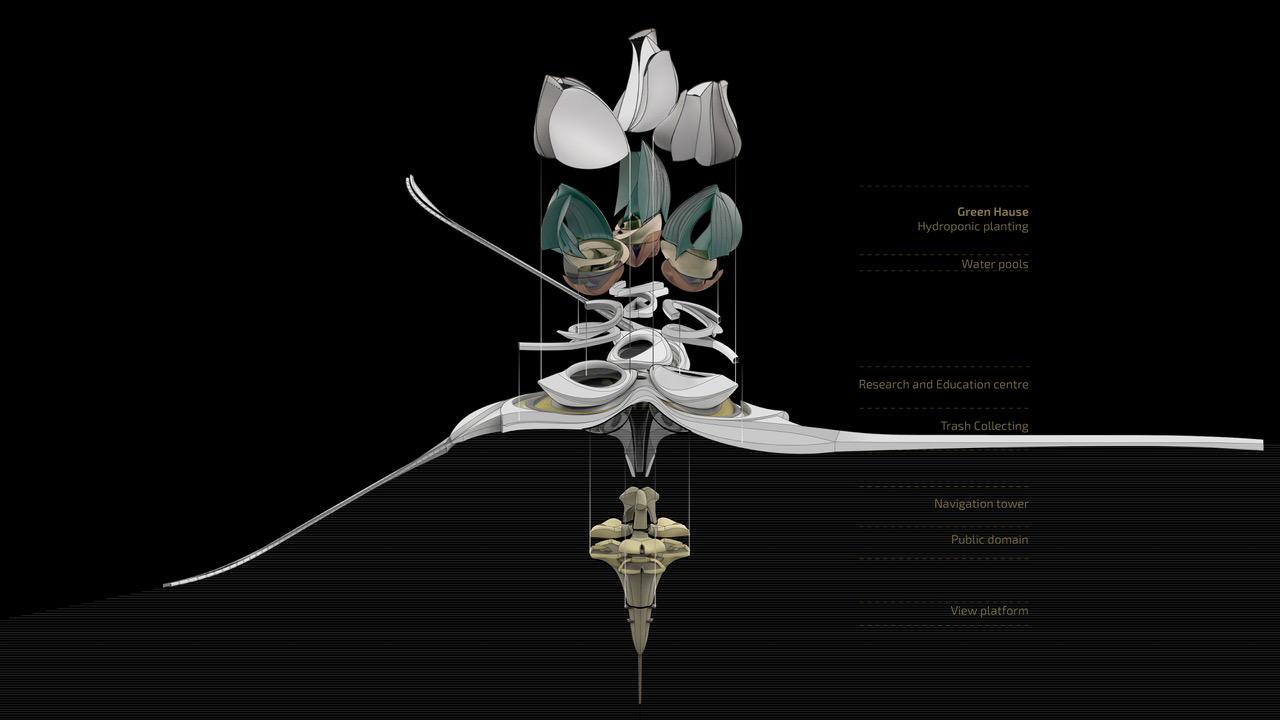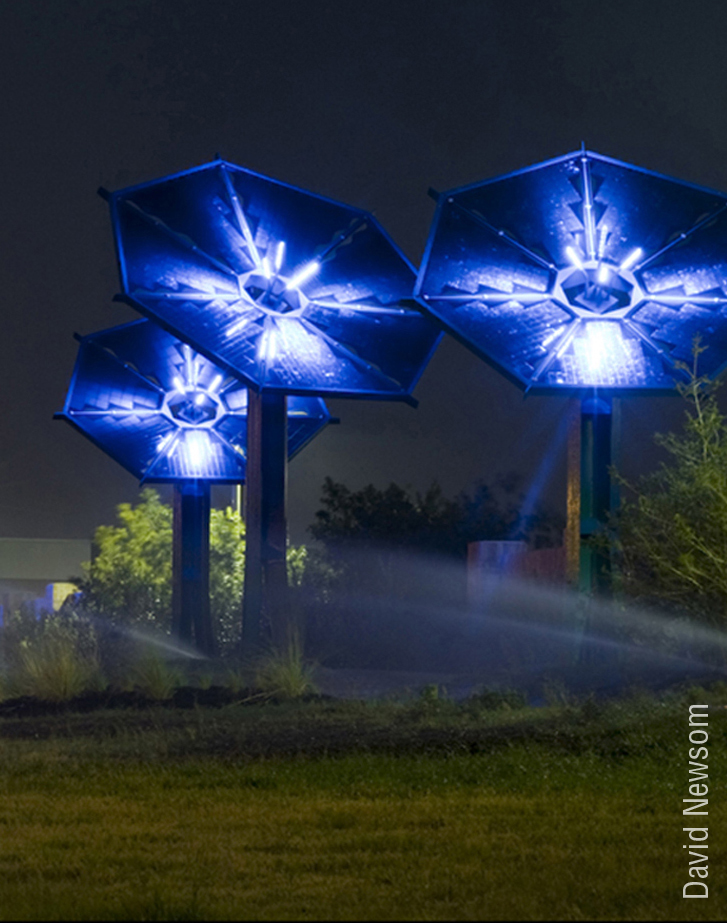Imagine a plastic-free ocean! Because to achieve it, we must first envision it.
Award-winning designer Lenka Petrakova offers a perfect springboard for that vision – a stunning design for a floating, ocean-based station that collects plastic debris from the ocean’s surface and breaks the waste down into recyclable material.

Lenka Petrakova, The 8th Continent (2017). Architect’s model. ©Lenka Petrakova 2021. Courtesy of the artist.
Convinced that “today is the time to imagine a cleaner, environmentally more sustainable future [achieved through] technical, architectural and artistic creations,” Lenka envisioned her design as a way to restore balance to “the life-giving ocean…for our planet’s survival.” Over 8 million tons of plastic waste enter our ocean each year. Driven by ocean currents, the debris coheres into massive collections of floating or suspended waste – and even larger accumulations of plastic on the ocean floor.
The largest known surface collection, the “Great Pacific Garbage Patch,” has been estimated to occupy 1.6 million square kilometers – more than twice the size of Texas. Dubbing this patch “The 8th Continent,” Lenka chose that title and location for her proposed prototype.

Lenka Petrakova, The 8th Continent (2017). Architect’s model. ©Lenka Petrakova 2021. Courtesy of the artist.
Designed to be self-sufficient, The 8th Continent station consists of 5 main parts:
- A floating “Barrier,” harnessing tidal energy to collect and channel surface debris.
- A Collector to sort, biodegrade and store collected waste.
- Solar-powered Greenhouses to desalinate filtered wastewater and grow plants.
- A Research and Education Centre to study aquatic processes, educate the public about the connection between our onshore activities and deteriorating marine environments, and, in Lenka’s words, “change [our] relationship with the marine environment for generations to come.”
- Living Quarters and support facilities, connected like a ship’s keel to every part of the vessel.
Like other biomimetic architectural projects, the station draws inspiration from nature, but also applies construction principles derived from natural environments. Imitating nature, the design of the station’s interconnected buildings resembles large flower petals resting atop sepal-shaped platforms. The petals optimize condensed water collection, stabilize the station against heavy ocean currents, and operate like sails for wind navigation.
Developed as a thesis for the University of Applied Arts in Vienna, Lenka’s design won the prestigious 2020 Grand Prix Award for Architecture and Innovation of the Sea from the Jacques Rougerie Foundation, a French institute supporting innovative, sustainable responses to pressing environmental challenges.
Although the project has yet to be built, it serves as an invitation to imagine a more balanced relationship with the marine environment – and to begin moving toward that goal. Challenges include: How can we prevent plastic waste from entering the ocean? Who will build and operate a floating station, modeled on Lenka’s design, to capture and recycle already accumulated surface debris? How do we address the much greater volume of waste on the ocean floor? But Lenka holds out hope, reminding us that anything one person can imagine, another can make real.


